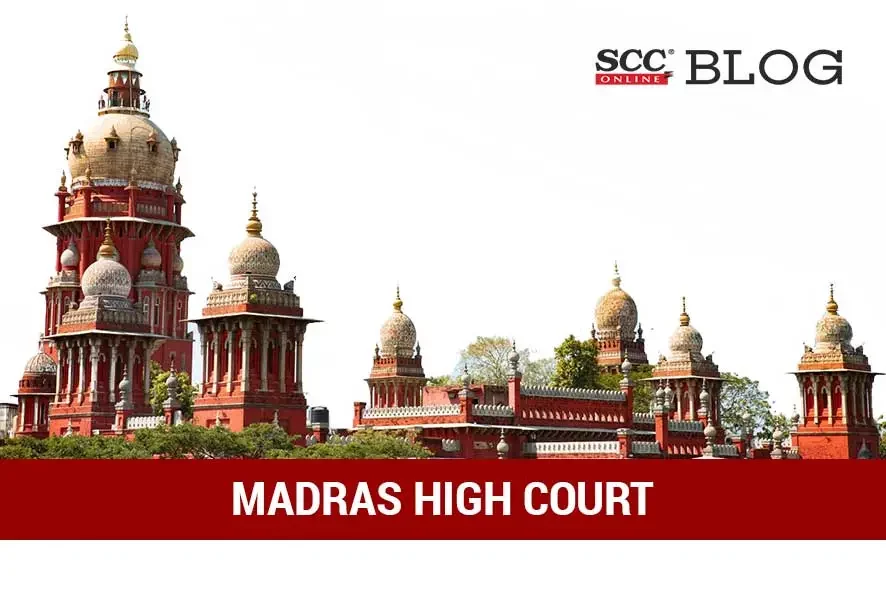Madras High Court: In an appeal, the division bench of M.S. Ramesh and N. Anand Venkatesh*, JJ. has reiterated that the final report placed for scrutiny before the Public Prosecutor (‘PP’) is not for the purpose of getting an opinion from the PP and this procedure should be adopted only to ensure that the final report is filed before the Court in an effective manner and is legally sustainable. It is not necessary that this procedure has to be adopted in all cases and it can be restored to serious crimes. Thus, the Court directed the Director General of Police, Tamil Nadu (‘DGP’) to issue a clarificatory Circular.
The Court noted that the status report gives the particulars of the investigation conducted by the Specialised Wing in 11 Taluk Police Stations and also, in the Coimbatore Commissionerate. After perusing the status report, the Court said that there is a visible improvement in the completion of the investigation on time and filing of the final reports before the Jurisdictional Court concerned. Further, the Court noted that such filing of final reports before the Court concerned has taken place on time in some serious offences like, murder, dacoity etc.
The Court said that it expects that the DGP will identify some more Police Stations and expand the operation of specialised Investigation Wing. Further, the Bench noted that the DGP is in the process of finalising the Digital Evidence Manual and has sought two weeks’ time in this regard.
As per the Court, the finalisation of the Digital Evidence Manual is a very important step in ensuring that the procedure is followed methodically in all cases involving electronic evidence. Further, it said that this process of 2017 cannot be hastened, and it involves lot of application of mind. Thus, the Bench granted four weeks time to DGP to finalise the Digital Evidence Manual.
After taking note of Muthu Vazhivittan v. Additional Chief Secretary to Government1, the Court said that the Division Bench of this Court after taking into consideration the relevant provisions of the Code of Criminal Procedure, the relevant rules under the Criminal Rules of Practice and the legal precedents, has come to a conclusion that the Investigating Officer is not legally obliged to take the opinion of the Public Prosecutors and law does not contemplate obtaining an opinion before a final report is filed before the Jurisdictional Court.
The Bench viewed that the DGP has taken this judgment to its extremity, because of which, final reports are filed even without the minimum scrutiny of the PP. Such filing of the final reports without scrutiny of a trained legal mind may prove to be counterproductive in cases involving serious offences. The nuances of various provisions under penal law can be appreciated well only by a legally trained mind and such a standard cannot be maintained by an investigating officer.
The judgment in Muthu Vazhivittan (supra) does not completely prohibit the PP from scrutinizing the final report. It only lays down the law that the investigating officer is not legally obliged to take opinion from the PP and there is no necessity for taking an opinion before the final report is laid before the Court. It nowhere stated that the final reports need not be scrutinized by the PP. By this Judgment, the division bench wanted to ensure that the final reports are not filed beyond the statutory period in cases involving serious offences, on the ground that there is a delay in obtaining the opinion of the PPs, since the same results in the offender coming out on statutory bail.
Thus, the Court directed the Director of Prosecution to issue a Circular to all the PPs across the State of Tamil Nadu sensitizing them to deal with final reports placed before them for scrutiny by the investigating officer at the earliest. The Circular shall also make it abundantly clear that the delay in scrutinizing the final report should never be the cause for filing the final report beyond the statutory period prescribed under the CrPC and the other special laws. The Director of Prosecution can prescribe some outer time limit for the scrutiny of the final report to ensure that it is filed on time before the Jurisdictional Court concerned. This procedure shall be followed scrupulously in cases involving serious offence. However, it will be left open to the investigating officer to get the final report scrutinized by the PP before the same is filed before the concerned Jurisdictional Court
Further, the Bench said that it is not necessary for the PPs to give an opinion and any defects that are identified in the final report can be informed to the investigating officer who can rectify those defects and thereafter file it before the Jurisdictional Court concerned.
The Bench directed the Chief Secretary to the Government of Tamil Nadu and the DGP for taking effective steps in conducting the orientation programme for the Public Prosecutors across the State of Tamil Nadu and sensitizing them on effective investigation and filing of final report within the time prescribed by law.
The matter will next be taken up on 21-07-2023
[Satheesh Kumar v. Inspector of Police, 2023 SCC OnLine Mad 4258, Order dated 20-06-2023]
*Judgment Authored by: Justice N. Anand Venkatesh







